I made the video below 3 years ago. Since that time, and for many years prior, nothing has changed for me in how I collect and treat water in the backcountry for biological pathogens. And when I say collect, it is more than just dipping my bottle or pot in a creek, there is a thought process I use in reducing the variables that could hurt me as you will see in the video.
It is also worth noting I am blessed with the Chattahoochee National Forest in my ‘backyard,’ thus, manmade pollutants haven’t been a concern in the places I collect water due to their remote locations and topography. I understand many who read this will not have some of those benefits, so you must address your water needs specific to YOUR environment.
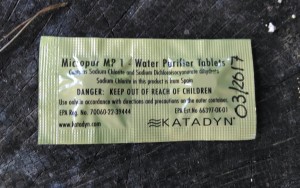
For days hikes and emergencies, I use Mircropur Tabs. By duct taping a few to my water bottle, I always have some on hand, very convenient. While the expiration date is stamped in the foil, I write it on the package with a permanent marker. See the image below for more details on the tabs.
When you watch the video, I hope you get a chuckle too when I talk about what could be in the water as my dog Scout walks behind me… in the water. Couldn’t have timed it any better. In this video I am just sharing what I do. There are other considerations you may need to address specific to you and where you collect water. In addition, there are more water treatments than mentioned here.
http://youtu.be/s4yqZaMMhak
More info…
- Backpacker’s Field Manual by Rick Curtis
- Equipped to Survive – see the section on Water Purification
- Trash Bag Survival – our own article where we show how to boil water in a trash bag as well as use as a transpiration bag among a host of other things.

Click to enlarge if needed. I post this here as I don’t believe you can find it online any longer and it does speak to the EPAs requirement of 4 hours treatment time. See the Equipped To Survive link too for their opinion on the subject if you are interested.
This is a very serious subject I do not take lightly, nor should you… as there is the potential of a variety of organisms and contaminants where we collect drinking water in the backcountry that could make us sick or even cause death.
I am sharing here WHAT I DO in my woods for collection and treatment of backcountry water — you should note I have a ‘day job’ and do not make my livelihood as a survival instructor. In this article I have listed additional sources of information and my bio (below). Always consider your source of information and understand your environment maybe different than mine! This is not a substitute for proper training and experience. If you have any questions about that, please see our ABOUT page.
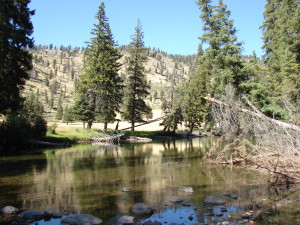
Slough Creek in Yellowstone NP. Looks like great water but there was a deer carcass just upstream. In this case I was more afraid of the grizzlies in the area!


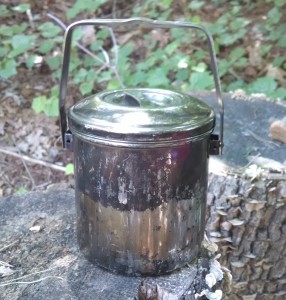

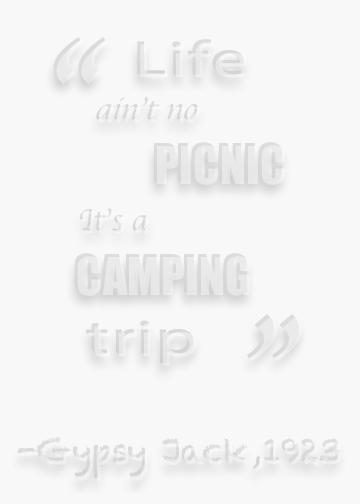
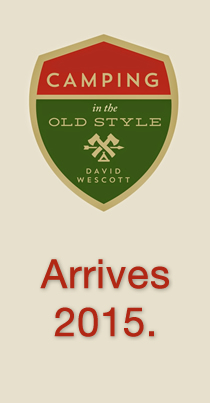

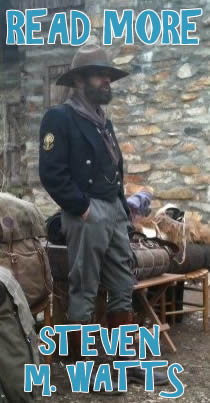
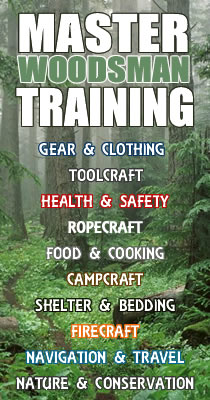
[…] you read my article on Collecting & Treating Water in the Backcountry, you know I duct tape the individually wrapped Micropur tabs to my water bottle for a convenient […]
[…] must read The Tinder Bundle That Fresnel Lens in Your Survival Kit Your Campfire and the Weather Collecting and Treating Water in the Backcountry Basic Safe Travel and Boreal Survival Handbook Five Heat Loss Mechanisms by […]
[…] Water collection (for your environment) and treatment. The link is an example for me in my area. […]